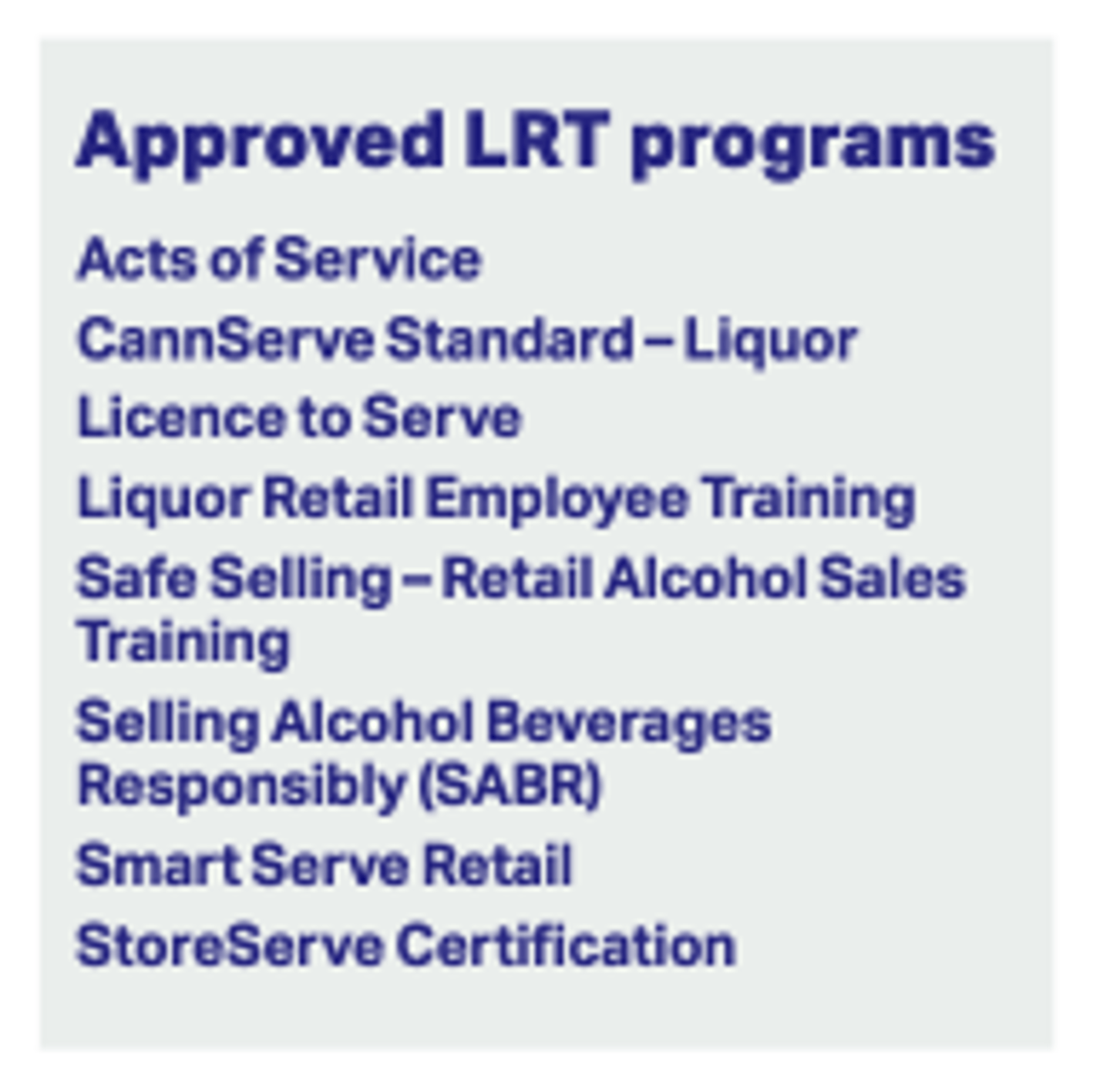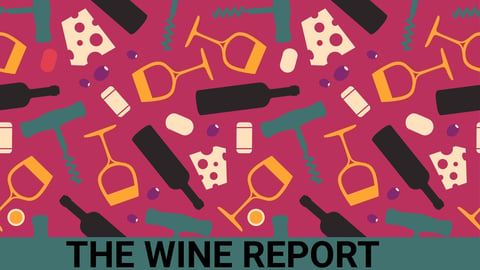CSNC EXCLUSIVE: Training for success in beverage alcohol sales
Months after Ontario expanded beverage alcohol sales into c-stores, the sector is still seeing a steady stream of licence applications. In the first two weeks of November, the Alcohol and Gaming Commission of Ontario (AGCO) approved an additional 65 Convenience Store Licences (CSL), bringing the tally to 4,799 licences approved as of the end of November. That is up from 4,220 as of Sept. 5, the launch day of the category, which includes beer, wine, cider and RTD beverages, into convenience.
Even after securing approval, a store has a lot to consider and get done. At the top of the checklist? Ensuring their employees are properly trained.
“Staff that are involved in the sale, delivery or taking orders for the sale of liquor, as well as security staff, must be 18 years of age or older and complete one of the AGCO Board-approved training programs before they are allowed to sell alcohol,” says Raymond Kahnert, senior communications advisor at the AGCO. “These programs ensure that staff are trained to handle liquor sales responsibly and in compliance with Ontario’s regulations.”
The AGCO has approved two types of training programs—the Smart Serve Training Programs and Liquor Retail Training Programs. C-store licensees/employees can choose a Smart Serve Program (which restaurant, bar and other hospitality servers of alcohol must take), or one of the new Liquor Retail Training Programs created specifically for retail establishments in the sale, sampling, delivery and taking orders for the sale of beverage alcohol. It does not cover serving.
Following an open call in May for submissions from companies interested in providing liquor retail training, the AGCO approved eight Liquor Retail Training Programs for c-store employees. Upon completion, certification is valid for five years after which point employees will be required to take an AGCO Board-approved course again. While all the programs feature real-world scenario training—like what to do if an of-age customer appears to be purchasing for minors gathered outside—and quizzes, they have notable differences.
CSNC spoke to four providers and here’s what we learned.
ID Please; Selling Alcohol Beverages Responsibly (SABR)
Cost: $10 per person for CICC members, $19 for non-members
The SABR program was spearheaded by Mike Hammoud, the Convenience Industry Council of Canada’s VP, Atlantic Canada in partnership with Matt Shaw, a software engineer with VSREps.com in Halifax, and is the first retail-focused training course for the sale of alcohol in Canada. “It was created for Ontario, but plans are to expand the course into other provinces where alcohol is sold in the convenience channel,” says Hammoud. With ID Please being the gold standard in age verification for the sale of nicotine products nationwide—tens of thousands of employees have taken the course—the CICC sought to create a similarly strong online program for the alcohol category. To date, SABR, which is offered in English and French, has issued over 10,000 certificates. One of the things that separates SABR from other programs is the fact that course purchases are transferable and open-ended. “There is no 30-day expiry date,” says Hammoud. “And so, if you’re an independent and sign up for six ‘seats’ and only end up needing to use four, you can assign the other two at a later date.” The SABR platform also gives store owners visibility into where employees are in the training process and the ability to digitally store and maintain certification records. “All the programs are approved and accredited, but you need to consider the technology behind it. Some programs take a one-and-done approach with their tech,” says Hammoud. “We think it’s really important owners have that access for if an inspector shows up, because not all the programs do.”
StoreServe
Cost: $13.99
AhoyLMS operates a Learning Management System platform first developed for employee training in recreational cannabis. Under the name Cannabis Training Canada, AhoyLMS worked with provincial governments on a course approved in Ontario, Nova Scotia, British Columbia and Nunavut. Having also worked with Nunavut on a server training program for bar and restaurant staff, as well as others who serve alcohol, Marcus Acaster, co-founder of AhoyLMS/StoreServe, says “we knew we could help when the opportunity came up with beverage alcohol in Ontario. Our programs are already mandatory for anyone selling and serving liquor or recreational cannabis in Nunavut.” Optimized for any device (computer, tablet or phone), StoreServe features various learning vehicles designed to improve comprehension and retention for different types of learners, even if English isn’t their first language. “We wanted to make it really easy for people to digest,” says Acaster. StoreServe is also offered in Hindi and French and will soon be available in Korean and Mandarin. The backend provides AGCO inspectors with access, removing the need for keeping physical proof of certification onsite. An administration platform is available for multi-employee customers, providing visibility into all staff training, but typically isn’t cost-effective unless the customer has at least 100 employees. As Acaster explains, “StoreServe is focused on smaller stores. The program appeals to the independent retailer—smaller mom and pop shops with one or only a few locations.” At press time, Acaster says 3,500 employees have received StoreServe certification.
Acts of Service
Cost: $100
Not every AGCO Board-approved Retail Liquor Sales Training Program is completed via a virtual learning system. Take the option from SommWise, an Ottawa-based company founded in April 2024 by sommelier Brittany Sabourin and wine and spirits educator Tim Ouellette. Offering guided tasting workshops and presentations (including of non-alcoholic wine, spirits and beer), SommWise has also created Acts of Service, a four-hour in-person certification course on the responsible and compassionate retail sale of liquor. The co-founders bring the course directly to c-stores within a three-hour radius of Ottawa. “We didn’t want to make some rinky-dink online program and compete with everyone else,” says Ouellette. “We wanted to do something, neither better nor worse, just different.” While Acts of Service has a higher price point owing to the in-person format, Ouellette says that they’re looking to create lasting relationships with customers. “We want people who have taken our course to feel they can call us up with questions when needing something cleared up.” To date, two c-store groups have completed Acts of Service. The in-person format was particularly beneficial for both groups, as English was their second language, and they could engage in back-and-forth dialogue when needing clarification. (One group was Korean and the other Tibetan.) “There’s a lot of advantages to a classroom-like setting and together as a team,” explains Ouellette.
Smart Serve Retail Online Training Program
Cost: $24.95
Smart Serve, widely known since 1995 as the de facto alcohol training program for those in the restaurant and hospitality business with currently about 600,000 active Smart Serve certificate holders, in July announced it was partnering with the Ontario Convenience Stores Association for a new retail-focused training program targeting c-store operators and workers. At almost half the cost of the Smart Serve Full Course, Smart Serve Retail Online Training is still one of the more expensive online options as it’s fully proctored. This means users are required to allow access to their web camera for I.D. verification and screen sharing for test monitoring. While the AGCO doesn’t mandate Liquor Retail Training Programs to be proctored (and the majority aren’t), Richard Anderson, executive director of Smart Serve Ontario, says “the amount of cheating going on is through the roof—like c-store workers whose second language is English and get their son or daughter to take the test for them. From a liability perspective, we’re able to confirm 100% that the person who ordered the test is the one who took it.” Smart Serve Retail Online Training is currently offered in French, English and Korean—and by the start of 2025, in Chinese and Punjabi. While he didn’t share numbers for competitive reasons, Anderson says Smart Serve Retail Online Training landed the Costco account. “They had about 10,000 employees trained on it so they could launch alcohol sales across all 32 of their Ontario stores, which they did in late October.” No HST is charged on the program cost, as Smart Serve is a non-profit that funnels profits to charity. It gives about $1 million a year in bursaries and scholarships across 15 post-secondary institutions, supporting students in hospitality and culinary programs, and runs free programs like Smart Serve Cares, which launched in May 2024 providing free mental health resources and support to Ontario’s Smart Serve certificate holders.
Call for submissions
In November, AGCO launched an open call for training program submissions for Licence to Deliver (liquor delivery service) licensees. Smart Serve is currently the only approved training program for Licence to Deliver holders in Ontario and will remain an approved training program for the broader liquor sector.
AGCO will evaluate new applications submitted before January 20th and announce new licensees in mid-March.
This article was originally published in the January/February 2025 issue of Convenience Store News Canada














